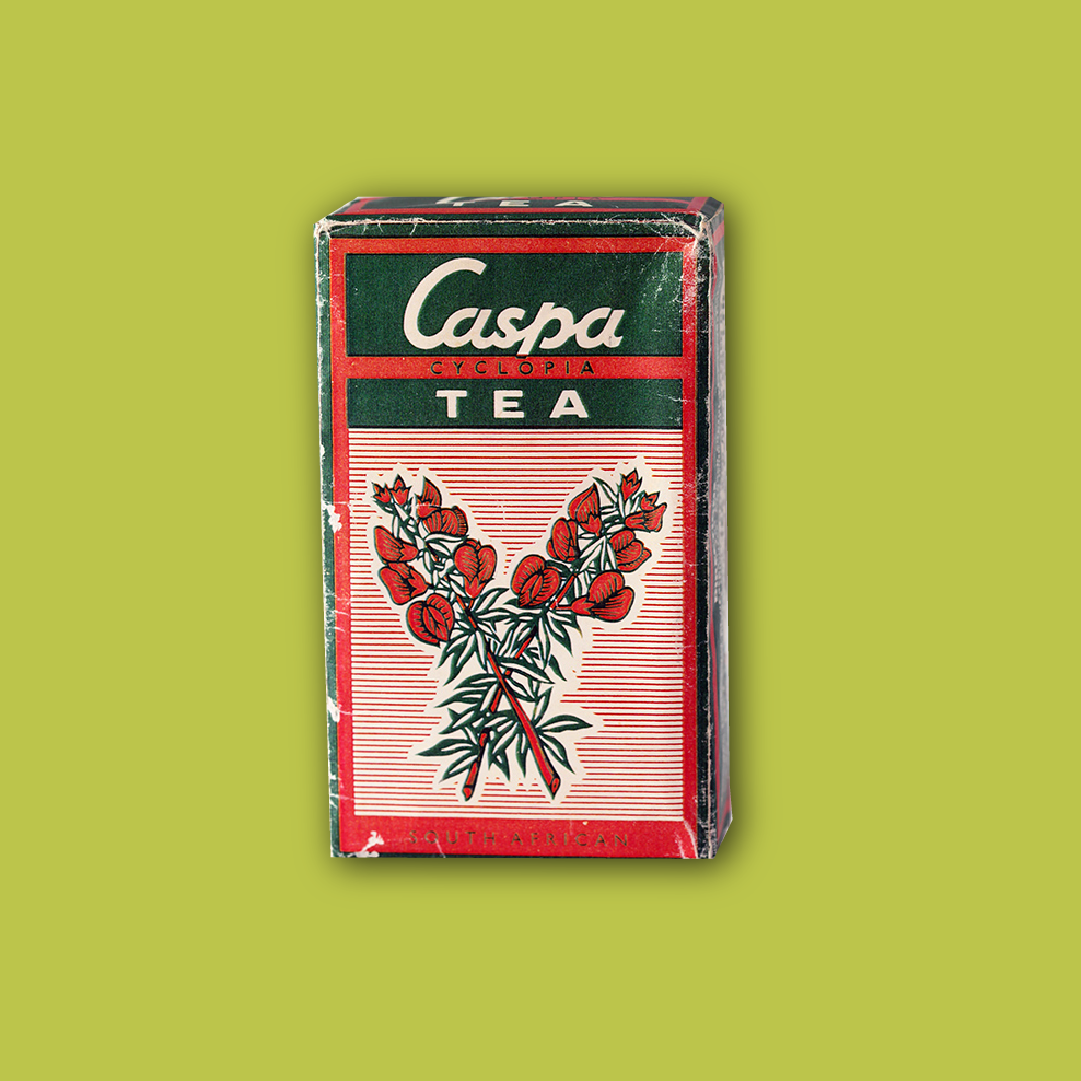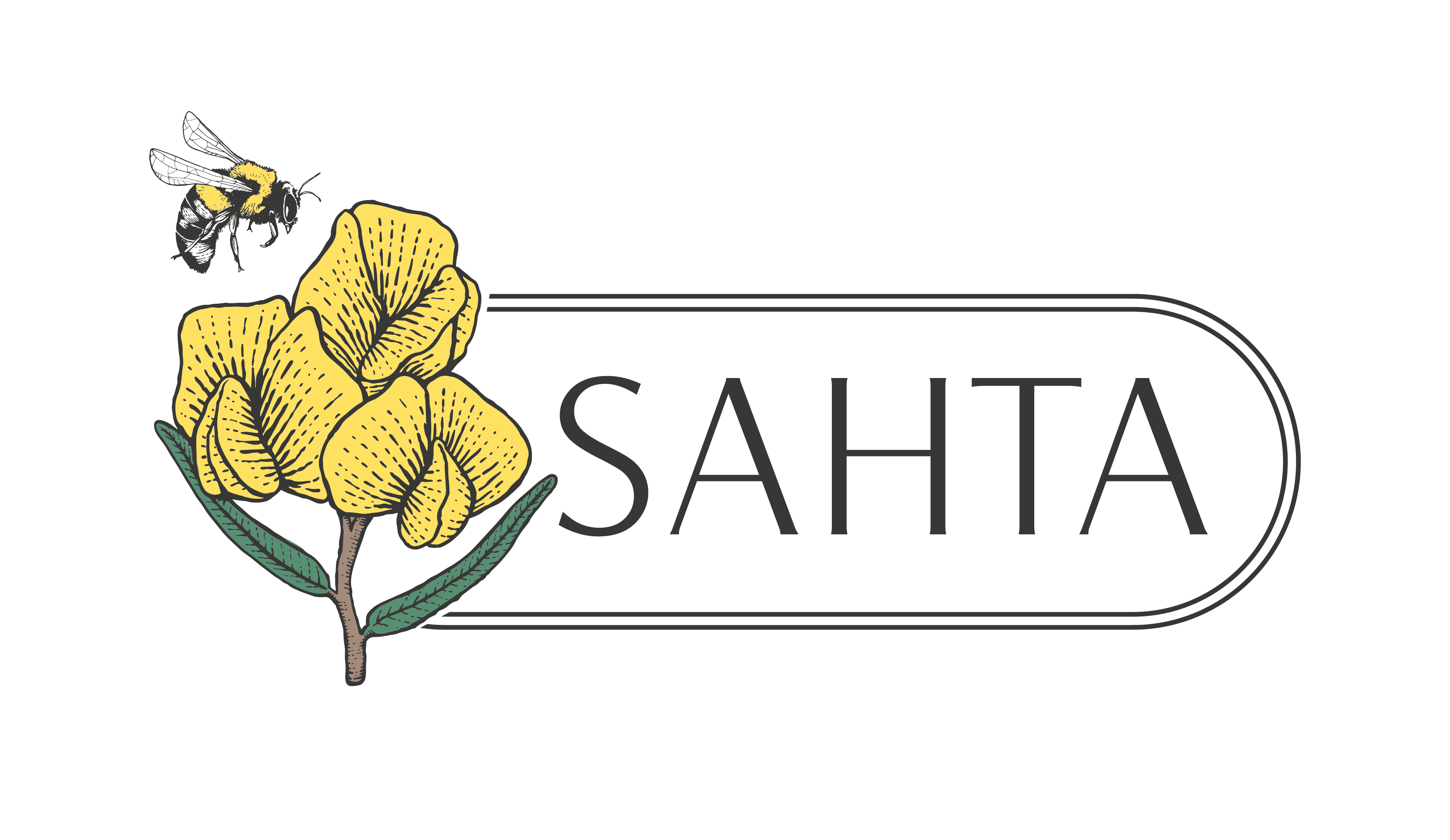
The packaging of ‘Caspa Cyclopia Tea,’ dating back to the 1960s, is the earliest example of honeybush tea packaged and branded commercially. Photo supplied by ARC.
From 1940 to 1990, several sporadic increases in tea production happened in the Langkloof. During this period, a few marketing attempts took place in the form of honeybush tea packaged in carton boxes. One of the earliest examples was the packaged ‘Caspa Cyclopia Tea’ (ca. 250 gram) through the involvement of Benjamin Ginsberg, the pioneer of rooibos marketing in the early development of the rooibos tea industry. Later 200-gram packets were marketed through Intercontinental Foods (Johannesburg) and Goldberger Trading (East London). The inscription ‘Contains no caffeine or harmful alkaloids’ appeared on these afore-mentioned packets. This labelling claim was derived from a preliminary report of the biochemical studies of honeybush tea by S.E. Terblanche (University of Port Elizabeth, now ‘Nelson Mandela University’) in the late 1970s. Also in the late 1970s, attempts were made to export honeybush tea to the USA, Japan and Germany, but without any success.
Since the revival of the industry in the 1990s, honeybush tea has been sold in bulk to international clients. It was exported for the first time in 1993, and again in 1995, to Japan and Germany, both major international markets for rooibos. Since then, the export market for honeybush has expanded substantially with about 632 tonnes recorded in 2011. However, shortages of plant material, as well as severe droughts and veld fires, have curbed export volumes. Major export destinations include the Netherlands, Germany, USA, Canada and UK. Apart from Japan, honeybush is also exported to traditional tea-drinking countries such as Sri Lanka, Malaysia and China. In 2019, a major shift in export to African countries was seen, indicating the potential development of new markets.
The industry also recognized the importance of local value-addition in terms of packaged products ready for the retail market. Today, honeybush products are sold as speciality and/or health products in major retail supermarkets, health shops, pharmacies, up-market farm stalls, as well as through online marketing. The involvement of major rooibos tea marketing companies contributed to the presence of honeybush products on supermarket shelves.
